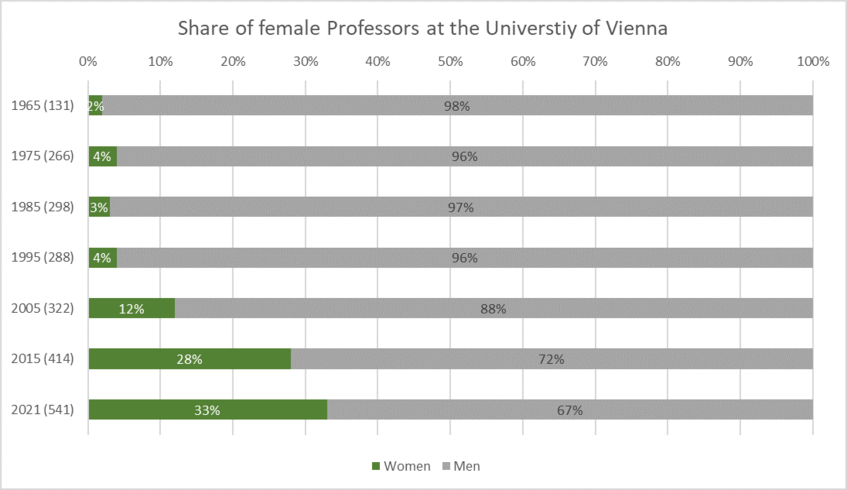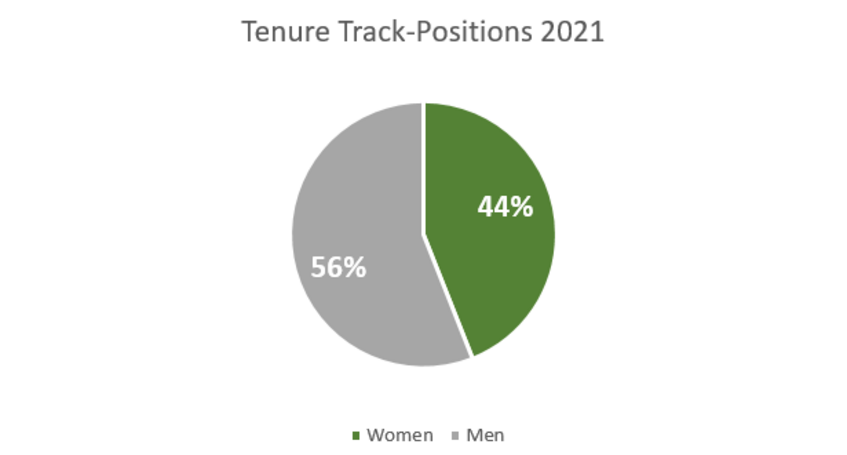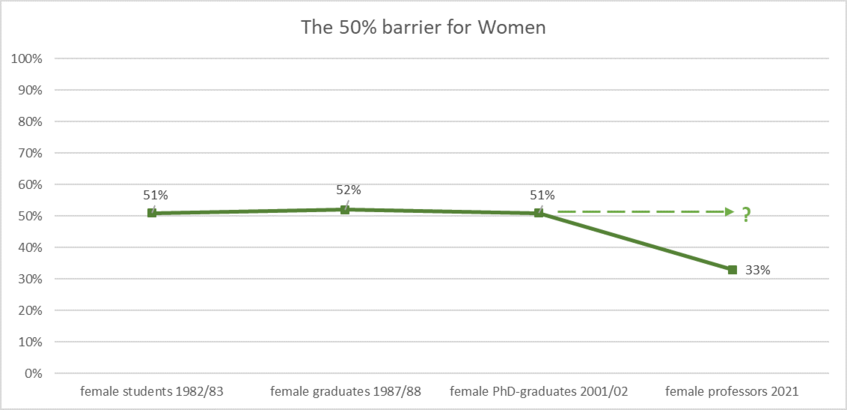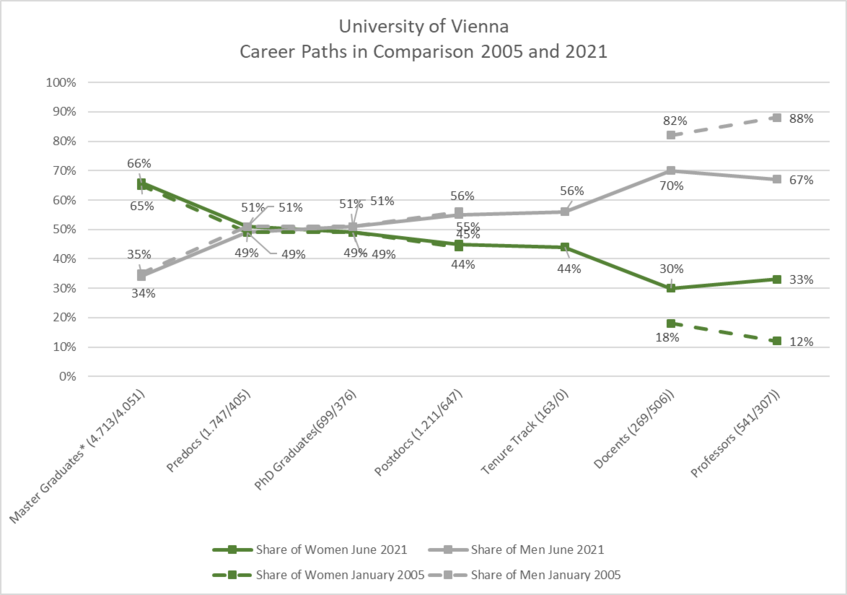Steep Careers - No Walk in the Park
Women are clearly ahead with regards to academic education. However, this does not (yet) apply to careers in science: in this “leaky pipeline”, much more women than men are lost at every level.
The reasons for this are manifold. Academia is shaped by precarious career paths and is not easily reconciled with other areas of life (family, care work) - areas that still are not gender balanced. Science culture is still male-dominated, especially in STEM (Science, Technology, Engineering, Mathematics). Selection processes often contain (gender) bias that has to do with the image of what "fits with us".
But the leaks in the pipeline are far from as big as they were in previous decades. Since 1995, the share of female professors at the university of Vienna has risen from 4% to 33%. Among tenure track professors the share in 2021 is 44%.

Sources: Archiv der Universität Wien, Abteilung EDV-Koordination und Personalcontrolling, Universität Wien

Source: Abteilung EDV-Koordination und Personalcontrolling, Universität Wien
Just a matter of time? Yes and no. Since the beginning of the 1980s more women than men are students at the University of Vienna. 40 years later, only one in three professors is a woman.

Sources: Statistik Austria, Hochschulstatistik; Datawarehouse Hochschulbereich unidata.gv.at;
with thanks to Herbert Posch, Institut für Zeitgeschichte der Universität Wien
The sharpes decrease in women can still be observed at the beginning of the academic career path: While women earn two thirds of all master’s degrees and diplomas, they make up only half of all predocs (academic employees without a doctorate). The shares up to the postdocs (academic employees with a doctorate) have remained the same in the last 15 years. Women did advance in the top positions, though.

Source: Abteilung EDV-Koordination und Personalcontrolling, Universität Wien
The last 15 years saw an increasing feminisation of "soft sciences" while the "hard sciences" remaiin a domain of men despite slight rising shares of women. The share of female professors in the Humanities is 43%, in STEM it's 16% (in 2021). Much more resources go into STEM, e.g. through third-party funding. We can see that there is a tendency to devaluate fields where the share of women increases in academia, too.
The toughest work ahead lies with leadership positions - at university as well. Once the first three women had begun their studies at the University of Vienna, it took 59 years until there was the first female professor, 92 years until the first female Dean and 102 years until the first female Vicerector. Around two thirds (64%) of employees in the administration of the University are women, while around two thirds (64%) of the biggest service units are headed by men.
Nevertheless, the advancement in the last two decades has been considerable and can also be seen in the top research. Four out of the six female recipients of the Wittgenstein-Preis (the Austrian “Nobel Prize”) work(ed) at the University of Vienna: Ruth Wodak, Renee Schröder, Claudia Rapp and Monika Henzinger.
